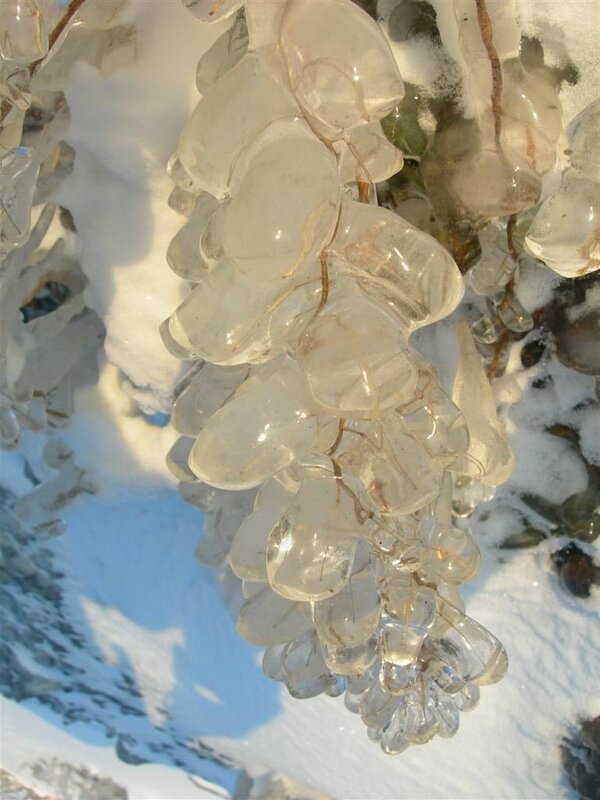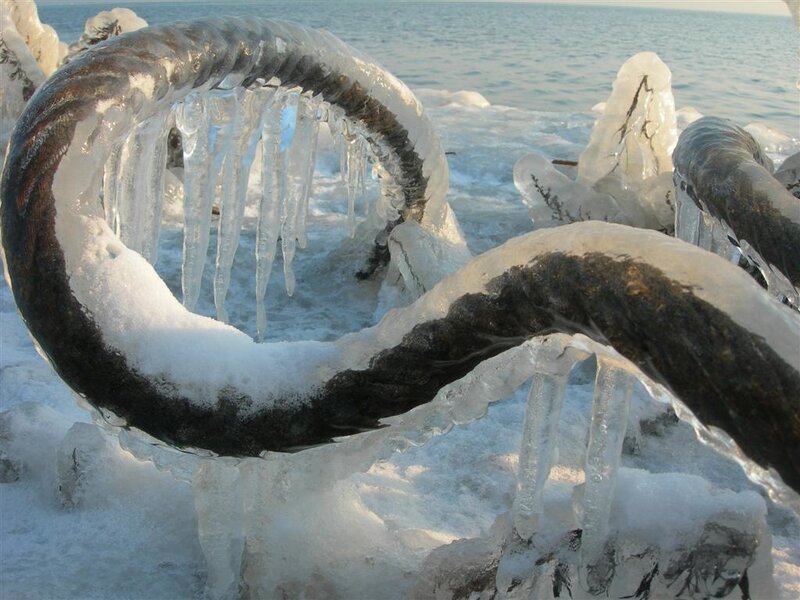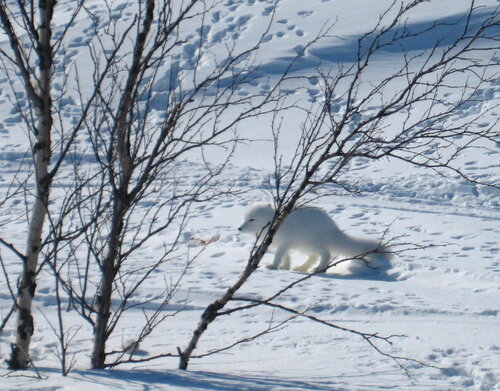The word «vodka» has been known since the 17th century and is most likely a derivative of «voda» (water). In the past, other names were also used for the drink: wine (bread wine), korchma or korchma wine, distilled wine, burning wine, burnt wine and bitter wine among others. It is thought that the drink itself, or rather its ancestor, a strong drink called aqua vitae (Latin for «water of life»), was first brought to Russia by Genoese merchants on their way to Lithuania. They travelled via Moscow, where the foreign guests had an audience with Prince Dmitry Ivanovich, called Donskoy for his victory over the Mongol-Tartar army on the Kulikovo Field by the River Don. Flattered by the hospitality of the Moscow governor, they presented him with vessels with the above mentioned spirit. However, our ancestors were not much impressed with this distilled fermented grape juice. Mead and beer were more popular in Russia at the time.
Time passed and in 1429, foreign visitors brought aqua vitae to Moscow once again; this time it was served as the universal cure. The liquid was appreciated at the court of the young prince Vasily the Second Vasilievitch, who later lost his eyesight in the feud with his relatives and got the nickname of «Dark». As the drink was too strong, it was normally diluted with water. It is likely that the idea of diluting alcohol (that is what aqua vitae actually was) with water was the starting point for manufacturing Russian vodka that was produced from grain, which was abundant in Russia. In the 15th century the monasteries of Russia began producing grain vodka.
For centuries Russian vodka was mainly made of rye. Rye grain as raw material for vodka production was its most characteristic feature up to the 1870s. After the 1930s wheat replaced rye in production of popular sorts of vodka; in certain period of economic dislocation and war vodka was made of potatoes even. Other grains are added in small proportions to rye as basic and indispensable ingredient for Russian vodka: oats, wheat, barley and buckwheat. Sometimes vodka can include fruit, berry, or spice additives.
As early as the beginning of the 16th century «burning wine» was brought not to Russia, but from it. It was the first experience of the Russian export of vodka that later would take over the whole world. It is worth mentioning that in the end of the 15th century the grand prince of Moscow and the Tsar of all Russia, Ivan the Third (who had an astute and strategic mind) introduced a state monopoly on the production and selling of vodka, as well as on all other alcoholic drinks.
In 1533, the first «Tsar's kabak» was opened, a place where various alcoholic drinks, including vodka, could be bought and consumed. In the times of Ivan the Terrible kabaks were rather widely spread. These places were mostly frequented by the Tsar's guards, who had no qualms at parting with their money earned with no significant effort. Moscow kabaks were mentioned in the diaries and travel journals of foreigners who visited the Moscow lands during the second half of the 16th century, calling kabaks them «Russian taverns». By the way, the word «kabak» is not Slavic by origin. Its origin is not known; the only thing that linguists are sure about is that it was brought to Russia from somewhere in the East. In kabaks, people drank, fought, played dice, but, unfortunately, did not eat. The kabak business was very profitable for the state; this is why the Rurikoviches, Boris Godunov and the first Romanovs did not only keep the state monopoly, but made it more rigid.

Ivan the Terrible
The 17th century was justly termed rebellious by the contemporaries since it was a series of revolts and all sorts of roguish activities. Alongside the «copper», «salt» and other revolts, there were also the «kabak» revolts which were caused by the kabak supervisors and their assistants' abuse of their positions.
Throughout Russian history, the manner of vodka production and sales has changed many times. The system of wine lease, the right to produce and sell vodka for a payment of a small percentage of income to the state, that made the leaseholders fabulously rich, was constantly being introduced and withdrawn. Peter the First combined leases with the state sale of vodka, trying to increase the income for the state to a maximum. During the reign of Peter the Great, the dynasties of Russian «vodka kings» started. In 1716, the first Emperor of all Russia offered the aristocracy and the merchants the exclusive right to distil wine.
In the middle of the 18th century, vodka was produced not only by state-owned distilleries, but also by land-owning aristocracy. Empress Catherine the Second, who favoured the nobility and granted it numerous privileges, made wine distillation the sole privilege of the aristocracy. The Empress's order of March 31, 1765 allowed only the nobility to distil wine and also freed them of all accompanying taxes. Rich merchants that made their fortunes at the time when anybody could produce vodka if he paid the «wine distillation tax» tried to share in the ownership of distilleries with aristocrats or use their names in the documentation. However, the government saw to it that the privilege of the nobility was kept and mercilessly punished those who disobeyed, confiscating such distilleries.
It is not surprising then that the largest part of vodka was produced in the estate of the nobility and the quality of the drink was unsurpassable. The producers attempted at high quality water cleaning and used natural proteins: milk and egg white.
It is also interesting to note that home-made vodka, unlike that of the state distilleries, was mostly flavoured. During the process of making home-made vodka, the alcohol was distilled three times, water and various plant flavours were added, and then the vodka was distilled once more for the fourth time! According to contemporaries, the tables in the estates of the nobility bore decanters with drinks that today we cannot even imagine! Sophisticated gourmets considered it a point of honour to have all sorts of vodka with flavours whose names started with all letters of the Russian alphabet. With cherry and pear, blackberry and acorn, caraway seed and dill, bird cherry and sage what a number of berries, roots and tree seeds was used for flavouring the traditional Russian drink! And, almost every landowner had his own special sort of vodka!
In the 19th century, beginning with the Patriotic War of 1812, the Russian treasury got less, the rouble underwent inflation, and the government introduced a state monopoly on vodka in the largest part of the Russian empire, except for Siberia, where it was useless to control the leaseholders, anyway. It is quite characteristic that after the war with Napoleon was over, Russian vodka was highly appreciated in France and it was not considered to be just one more exotic drink, but something noble and pure, brought to the French by those who defeated Buonaparte.
In Russia, the system of vodka production and sale kept changing. After the reforms, first, the excise system was introduced, then the ideas of the best way to sell bread wine were considered. Before 1885 vodka was sold only in buckets (12.3 litres); now bottles became more widespread.
The invention of this vodka is connected with the name of the famous chemist D. I. Mendeleev. The scientist had been searching for the ideal volume and weight ratio of alcohol and water for a year and a half and after having solved the problem published his findings in his doctorate dissertation «On Combining Alcohol and Water». Mendeleev's conclusions were appreciated and successfully applied in alcoholometry and vodka production. In 1894-1896 the national standard for vodka was established and the state monopoly on vodka that gradually spread all over the country was introduced.

D.I.Mendeleev
The prohibition measures that were first introduced during the war with Japan of 1904-1905 are alone worth a separate detailed story. There is also the «prohibition law» introduced by the government of the Russian Empire on August 2, 1914 and officially cancelled by the Soviet government only in 1925. It is notable that the above mentioned monopoly on vodka led to a certain decrease in the number of alcoholics (anumber that was quite scary in the beginning of the 20th century). To a great extent this decrease was influenced by the regulations for selling vodka - in many regions vodka could be sold only before 8 p.m. However, this limitation did not work in St. Petersburg and Moscow.
It is not surprising then that in 1953 the «Moscow Special» was awarded a gold medal at an international exhibition in Switzerland. Among the items in the museum's collection, visitors will recognise the well-known «Stolichnaya» label without difficulties. This brand became very popular both at home and abroad as soon as it appeared on the market.
In May 1985, the beginning of Gorbachev's era, the sadly remembered document «On the Improved Measures Against Drunkenness and Alcoholism» struck a heavy blow to the national liquor and vodka industry. Although after 5 years time the absurd decision was considered erroneous, Russia can still feel the damage today.
On June 7 1992, the first Russian president, B. N. Yeltsin issued the Decree on the Abolition of the State Monopoly on Vodka. As a result, the country was flooded with low quality, very often fake, and therefore, hazardous product. The effect of this widespread fake vodka was so apparent, and the budget losses so noticeable, that in a year, on June 11, 1993, the new presidential decree was issued. This time it was called «On theReestablishment of the State Monopoly on Production, Storage, Wholesale and Retail of Alcoholic Products».

Sources:vodkamuseum.ru, russia-ic.com






































